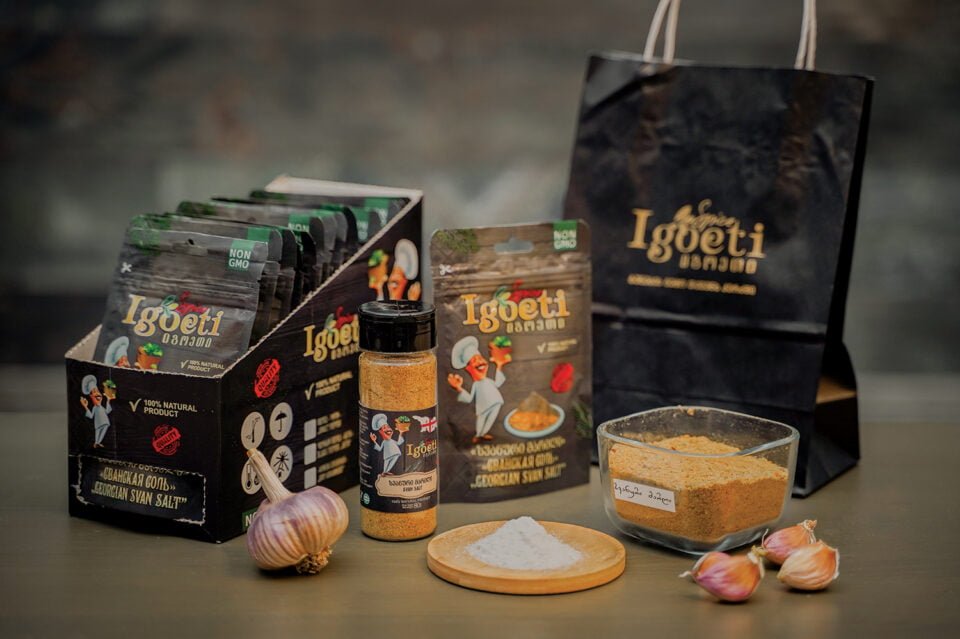The Georgian spices-producing company Igoeti intends to start exporting about 20 commodity items to the Netherlands, the USA, Kazakhstan, and Japan this year, as well as to strengthen its position in the domestic market.
The Igoeti LLC enterprise, located in the village of Igoeti, Kaspi district (Shida Kartli region, Eastern Georgia), was opened in 2020 and funded by a private investor. The company has implemented the HACCP system. Until 2022, the company’s products were presented only on the Georgian market. There was a shipment made to Russia last year, where people are well acquainted with Georgian dishes, and the reviews were only positive, the company says.
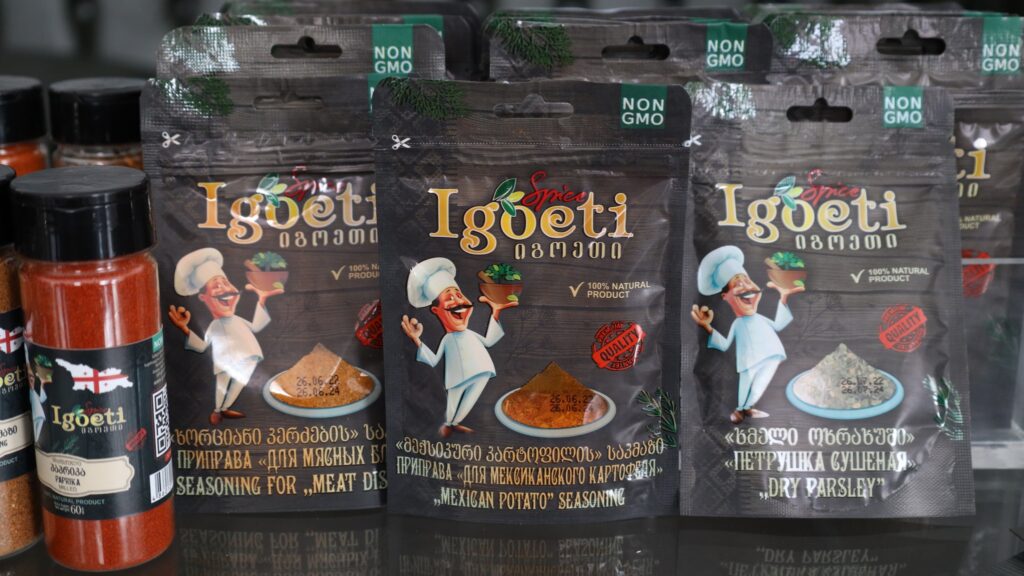 “The United States, the Netherlands, and Kazakhstan are already familiar with our products. Our spices have passed all sorts of tests, their taste qualities have been approved, and contracts are being concluded now. As for Japan, its representatives recently visited our enterprise, studied the production on-site, and asked to send samples. The other day we sent them a trial batch. If everything goes as planned, we will be able to start exporting to all these countries in the first half of this year,” Vazha Iluridze, commercial director of Igoeti LLC, told EastFruit.
“The United States, the Netherlands, and Kazakhstan are already familiar with our products. Our spices have passed all sorts of tests, their taste qualities have been approved, and contracts are being concluded now. As for Japan, its representatives recently visited our enterprise, studied the production on-site, and asked to send samples. The other day we sent them a trial batch. If everything goes as planned, we will be able to start exporting to all these countries in the first half of this year,” Vazha Iluridze, commercial director of Igoeti LLC, told EastFruit.
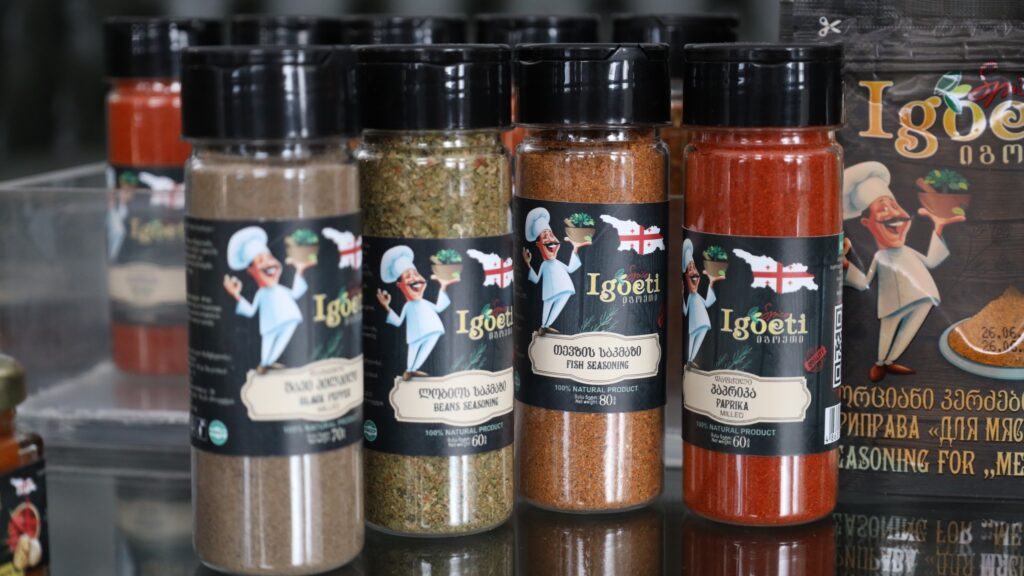 Currently, 18 types of dry spices and their mixes and canned adjika are sold under the Igoeti brand. The company focuses on making high-quality products.
Currently, 18 types of dry spices and their mixes and canned adjika are sold under the Igoeti brand. The company focuses on making high-quality products.
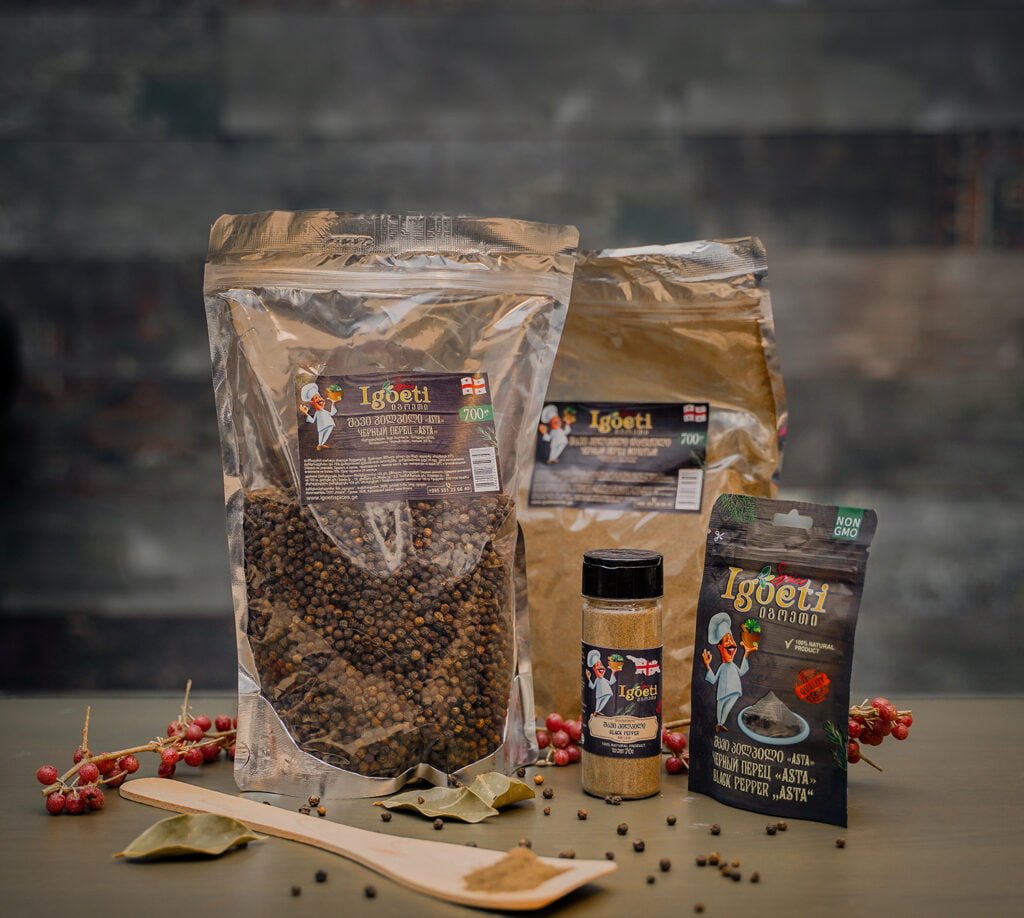
“There are 12 mixes of spices in our assortment. For instance, this is a seasoning for khinkali, consisting of 10 components – black pepper, cumin, etc. If you add it to minced meat, you will get delicious khinkali, mixes for lobio, meat dishes, fish, dry adjika, and others. We also produce 6 spices separately, including dry parsley, cilantro, dill, and basil. In addition to the mix for making adjika, we produce two types of adjika itself: traditional Georgian adjika and adjika with walnuts. We make premium-quality products in all respects, from packaging to taste,” said Vazha Iluridze.
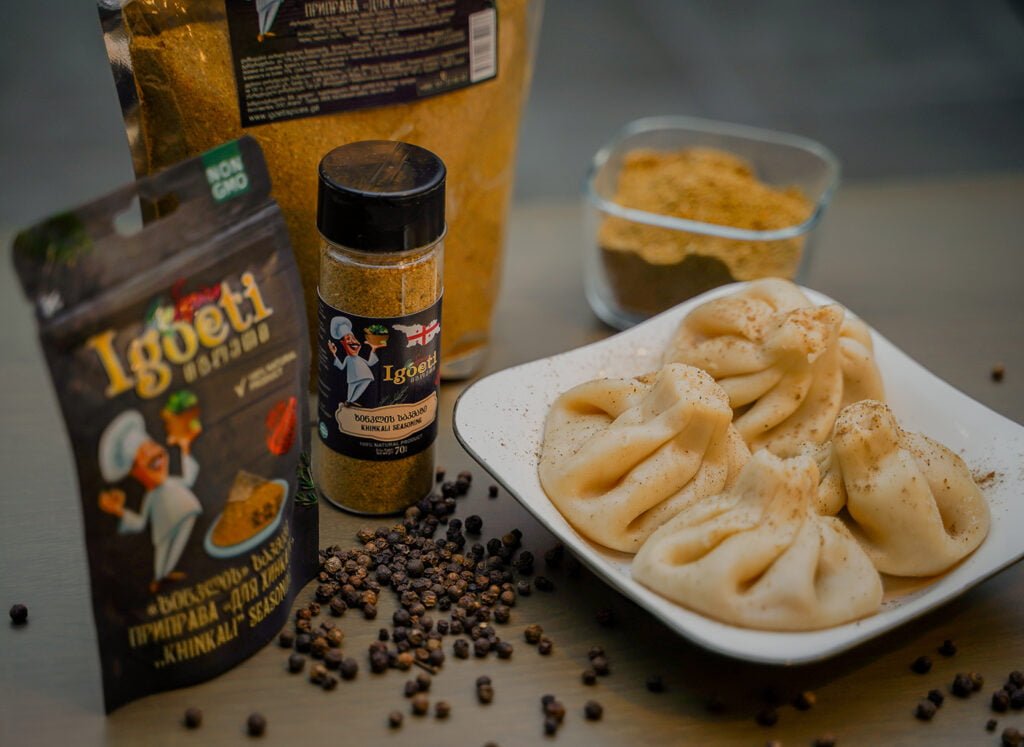
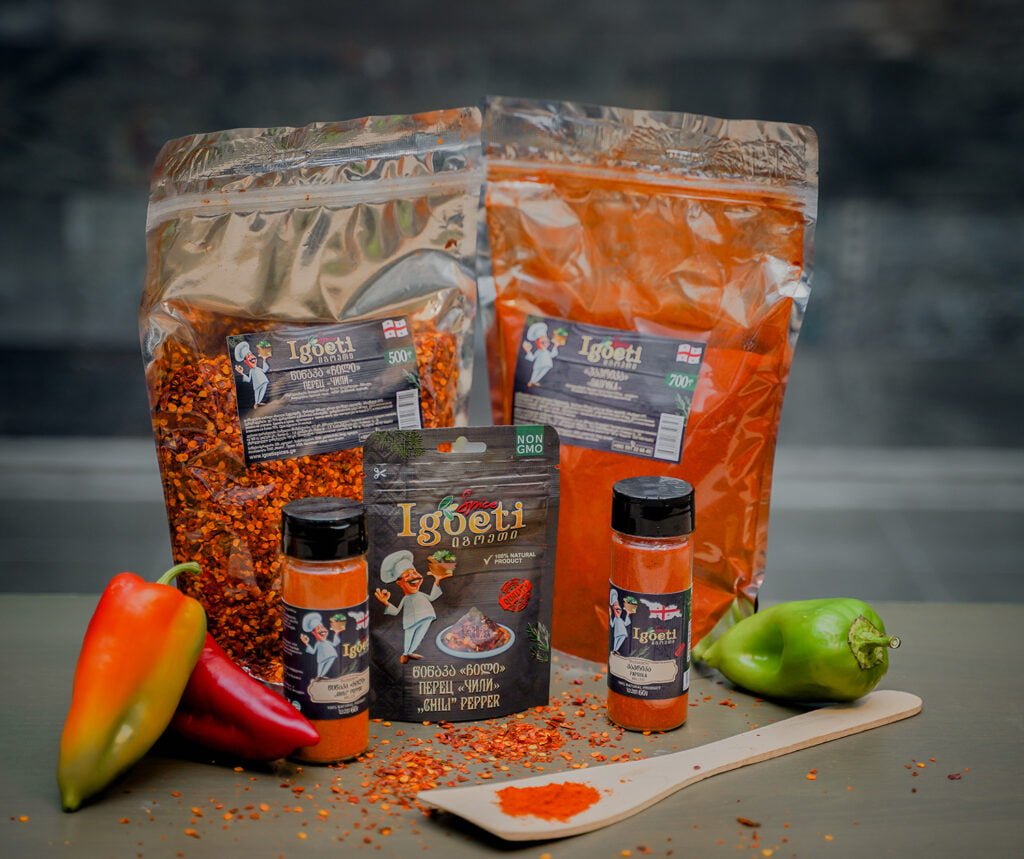
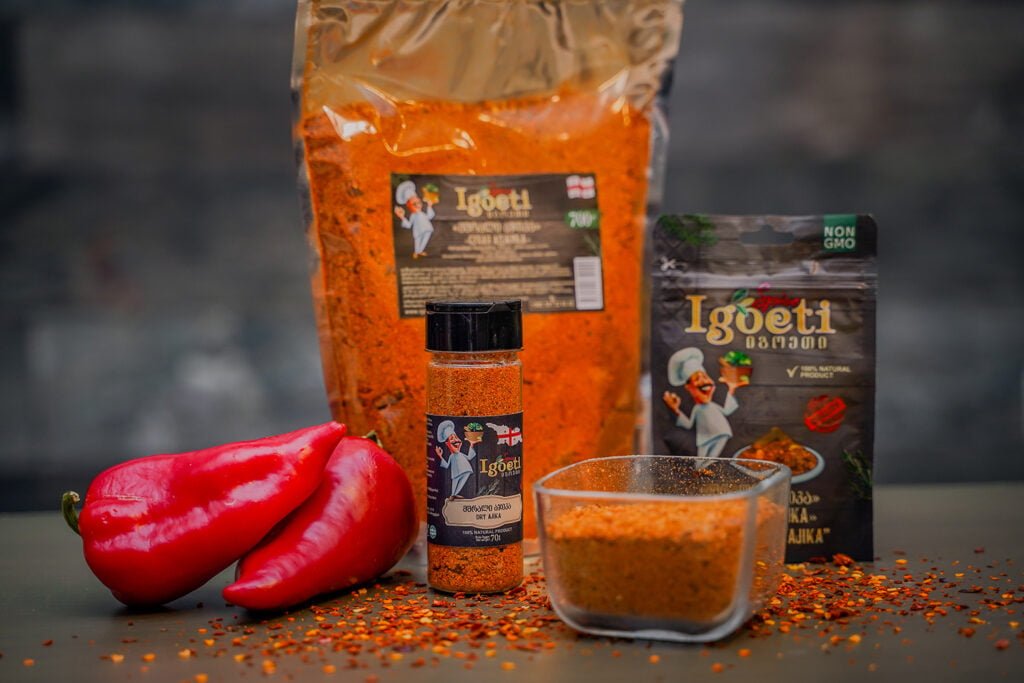 Igoeti spices are sold in sealed doypacks with a transparent window so the consumers can see the contents. In addition to small packages of 20 grams, spices are packed in convenient plastic bottles of 60-80 grams, as well as in large packages of 500 and 700 grams. As for adjika, it is poured exclusively into glass jars.
Igoeti spices are sold in sealed doypacks with a transparent window so the consumers can see the contents. In addition to small packages of 20 grams, spices are packed in convenient plastic bottles of 60-80 grams, as well as in large packages of 500 and 700 grams. As for adjika, it is poured exclusively into glass jars.
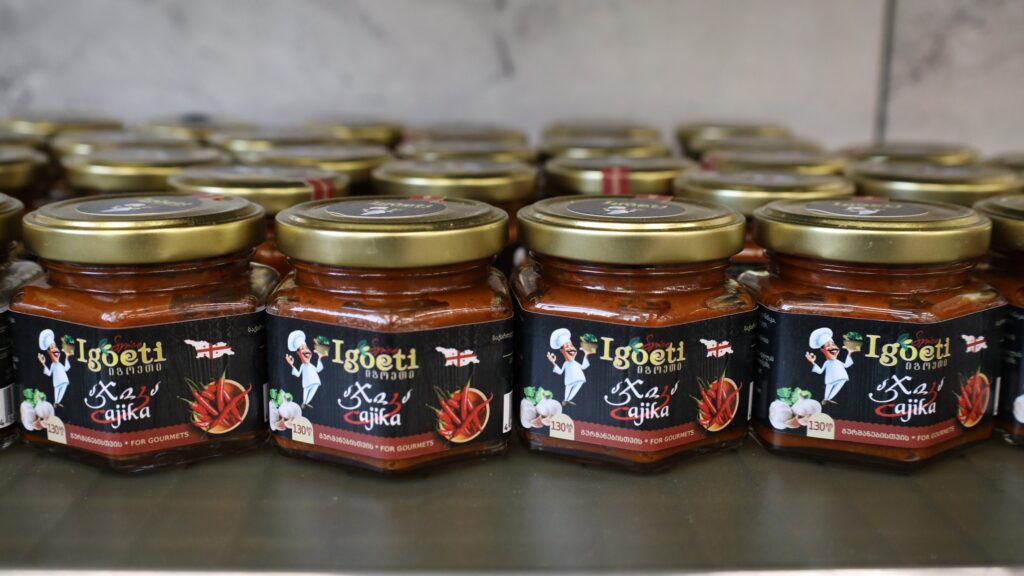 According to Vazha Iluridze, besides exports, the company is working on strengthening its presence in the Georgian market.
According to Vazha Iluridze, besides exports, the company is working on strengthening its presence in the Georgian market.
“Today, Igoeti products are presented in Georgian supermarkets Zgapari and Gurmania. At the same time, we have established contacts with other Georgian supermarket chains, and there are ongoing negotiations at different stages with them. We are also working on further expansion of distribution channels. In particular, we want to offer our large packages to the HoReCa sector, and this is relevant for us,” he said.
Read also: Gemozea – dry tkemali and tomato sauces from Georgia
Prices for Igoeti products depend on the type of spices and weight. For example, the average price for 20-gram doypacks in Georgian supermarkets is 2.2 GEL ($0.83).
At this stage, the company uses mainly imported raw materials, although it is working to increase the share of local raw materials.
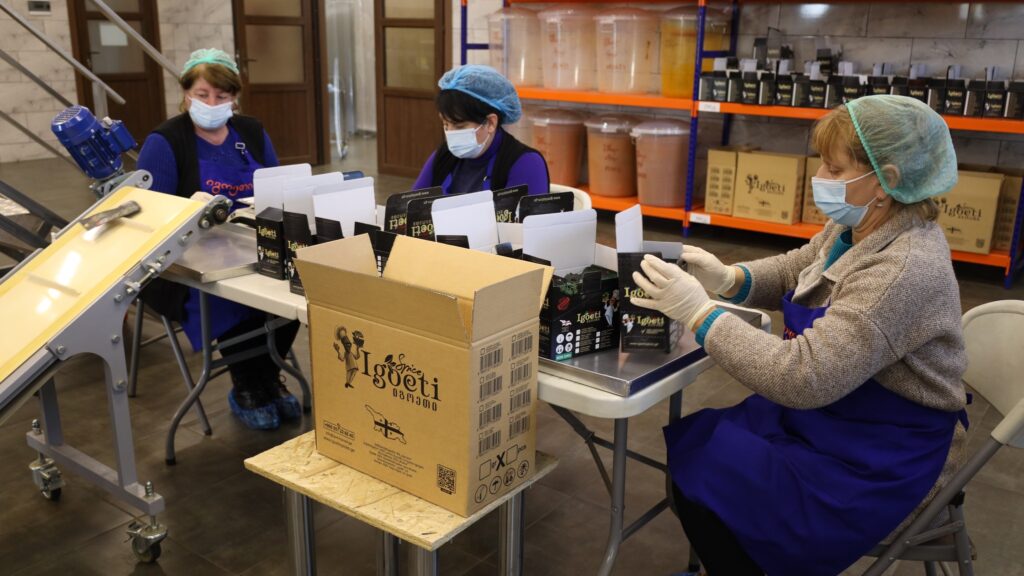 “Before we send raw materials to production, we check them in the laboratory. We had several cases, for example, when purchasing visually good plants of marigolds that did not give satisfactory results during tests. Therefore, we are mainly importing raw materials now, mostly from Egypt. We also use Georgian herbs. It would be wrong to talk about a specific ratio of local and imported raw materials – everything depends on supply and prices in a particular period. We are considering expanding cooperation with Georgian farmers, subject to quality control. At the same time, we plan to involve in agribusiness more actively and start growing several types of plants, for which Georgian soil is fertile. We have even bought several units of agricultural machinery,” Vazha Iluridze noted.
“Before we send raw materials to production, we check them in the laboratory. We had several cases, for example, when purchasing visually good plants of marigolds that did not give satisfactory results during tests. Therefore, we are mainly importing raw materials now, mostly from Egypt. We also use Georgian herbs. It would be wrong to talk about a specific ratio of local and imported raw materials – everything depends on supply and prices in a particular period. We are considering expanding cooperation with Georgian farmers, subject to quality control. At the same time, we plan to involve in agribusiness more actively and start growing several types of plants, for which Georgian soil is fertile. We have even bought several units of agricultural machinery,” Vazha Iluridze noted.
The use of the site materials is free if there is a direct and open for search engines hyperlink to a specific publication of the East-Fruit.com website.




